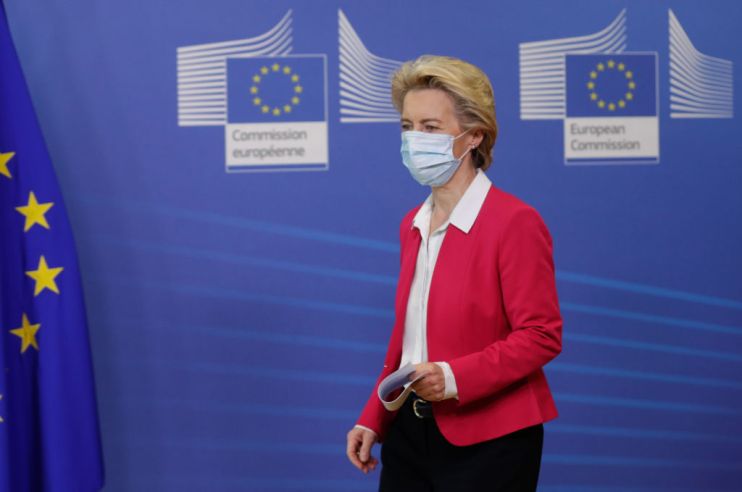Best of 2020: Europe hurtles into decline, almost unnoticed

As the year winds down, City A.M. is looking back at the columns that tell the story of our year.
For a Europe that has made managing rather than solving economic crises into an art form, the time for paying the piper is fast approaching.
The continent’s long-stagnating economy is perched at the edge of a precipice. The Covid-19 health crisis has morphed over these past six months into a severe recession, exacerbating long-established European economic fault lines. Already hard-pressed southern Europe is experiencing by far the worst of things, as the continent is rotting from within. The south grows ever more politically resentful, even as the north grows weary of bailing out its hapless European brethren.
Read more: OECD’s digital tax proposals gain broad support, German finance minister says
Vastly underreported, Europe’s moribund economy is presently entering a doom loop of deflation, with extremely limited weapons at its disposal to avoid the dreaded Japanification of the continent.
With the European Central Bank (ECB) having already lowered interest rates to effectively zero, there simply isn’t much efficacy in trying to stimulate the continent’s economy with no real ammunition: the further interest rates are pushed down, the less efficacy such a course of action actually has.
If there is nothing much to be done on the monetary side, the fiscal weapons are underwhelming too. The vaunted €750bn EU-sponsored European Recovery Fund — far from sparking the much-hyped “Hamiltonian moment”, when the continent would at last proclaim to the world that it had gotten its fiscal act together — characteristically turned out to be much less than meets the eye.
Not due to kick in until mid-2021 and spread out over 27 countries with payments stretched until 2026, this seems less an effort to decisively master the economic crisis than an attempt merely to yet again kick the can down the road, vainly hoping some good economic news magically turns up.
Before the Open newsletter: Start your day with the City View podcast and key market data
Italy, the largest single recipient of grants from the fund, is a case in point. Already in recession before the pandemic struck, Rome endured a depression-era collapse in GDP of 12.8 per cent in the second quarter of 2020. This is a country where a staggering 17 per cent of businesses are estimated to be zombie companies by mid-2021, having negative worth. The grants offered amount to a fraction of what Italy needs just to tread water.
Nor is Rome keen to avail itself of the loan option the European Recovery Fund puts forward as another avenue to help an increasingly desperate southern Europe. For the loans, at the insistence of the frugal northern Europeans, come with political strings attached that would make their recipients little more than economic colonies.
In other words, the European Recovery Fund, far from signaling a new and glorious chapter in the story of ever-deepening continental integration, instead amounts to another half-measure signalling Europe’s relative decline.
For anyone still clinging to the true religion of Europe’s rise, all facts to the contrary, here are the numbers.
Read more: City to shift €150bn of UK assets into France ahead of Brexit
Deflation is already setting in. The Eurozone inflation rate was negative 0.3 per cent in September, after being negative 0.2 per cent in August. In afflicted southern Europe, the September numbers were even worse than the average, with a negative 2.3 per cent in Greece, negative 0.9 per cent in Italy, and negative 0.6 per cent in Spain.
Soon, Italy and Spain will be little more than ECB economic colonies, as the Bank has already bought a gargantuan 25 per cent of Italian debt, with that number expected to skyrocket to 50 per cent by next year.
In this time of no inflation and sclerotic growth, southern European debt rates look set to explode to unmanageable levels. The OECD estimates, often notoriously overly favourable to Europe, make for the grimmest of reading. By the end of next year, the OECD’s worst case scenario has Greek debt standing at 229 per cent of GDP, Italy at 192 per cent, Portugal at 158 per cent, France at 152 per cent, and Spain at 150 per cent.
It is time to forget the relentless euro-cheerleading. There is no getting around the fact that Europe is in absolute decline.
Read more: LSE accepts €4.3bn offer to sell Borsa Italiana to Euronext
Main image credit: Getty